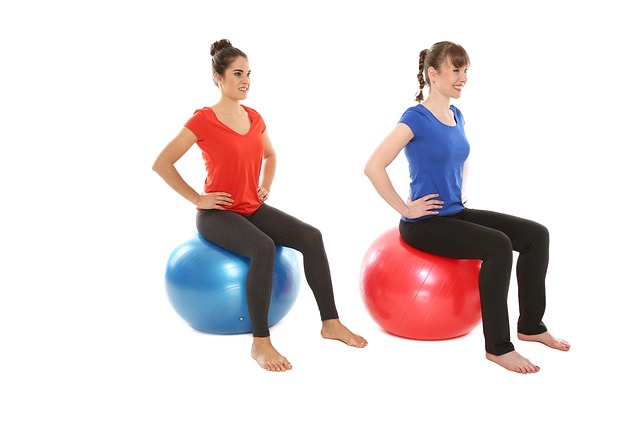How much exercise is okay for a pregnant woman? Can any woman exercise during pregnancy? And how can it aid in childbirth? Hila Kanner, a certified personal trainer for pregnant women, who herself has exercised during two pregnancies, explains the does and don'ts and the important things to remember.
Even in 2019, many people find it difficult to understand that it’s okay for pregnant women to exercise. Many women even get negative reactions and dirty looks showing how surprised people are that pregnancy is not a sickness and that it’s okay and even preferable to move your muscles a little and sweat even when you have a little joey in your pouch.
Everyone remembers the online commotion over the photo of Sarah Stage, the model who photographed herself with a six pack during pregnancy while exercising, running, lifting weights and stretching until the day of birth. Everyone thought that she was endangering the baby and that he won’t be able to grow inside such a tough and inflexible stomach. She, of course, wasn’t impressed by the intense reactions, and amazed everyone when she gave birth to a completely healthy 3-kg baby!
It’s true, however, that not everyone can exercise during pregnancy; only low-risk pregnant women who receive their doctor’s consent. But many studies show that exercise during pregnancy is healthy for both the mother and the baby. A study on approximately 450 pregnant women, half of whom engaged in physical activity during pregnancy and half of whom didn’t, shows that those who exercised gave birth more easily and with less complications.

Despite all this, there’s no doubt that you will need to change some of the exercises; you won’t be able to do flips in the air or jump rope on a trampoline. But, with the right guidance, you can get your energy back and the color back to your cheeks, and also post hot and sweaty pictures of yourself on Instagram and show the world that you’re not one of those women who sprawl on the couch with an ice-cream container (not that there’s anything wrong with that; it’s a treat that’s meant only for us!).
Hila Kanner, a Tel Aviv University certified personal trainer for pregnant women who owns a studio in Beer Sheva named “Fit Time”, gives us 10 important tips that every pregnant woman who wants to get on a treadmill needs to know. Read this before throwing a towel over your shoulder:
- During pregnancy, it’s recommended not to engage in physical activity that is more strenuous than what you are used to. This will keep your blood pressure at a normal level.
- It’s important to drink a lot of water during physical activity. This will keep your body hydrated and keep the salt level in your body normal.
- For beginners, it’s recommended to keep your heartbeat at a rate of no more than 150 beats per minute.
- Make sure to sleep and rest after exercising, to allow effective recovery.
- It’s important to eat a light meal that contains a monosaccharide (a fruit, honey or date syrup, a slice of bread, etc.) approximately 45 to 60 minutes before exercise.
- After exercising, it’s important to make sure you eat a meal that contains protein, carbohydrates and fat, as well as vegetables (a source of antioxidants).
- Take folic acid and iron supplements (if your doctor says you need them), because physical activity may cause a lack of these minerals in your body.
- Make sure the activity is safe for pregnant women and doesn’t endanger the baby (you can consult a certified trainer).
- It’s important to stay within the normal range of motion and strengthen your pelvic floor during and after pregnancy.
- In advanced stages of the exercise, it’s important to pay attention to the baby’s motions and listen to your body and its limits.

Bonus tip!!!
*Make sure to engage in physical activity during pregnancy, so that you prepare your body for childbirth in the most optimal way and have a quick and enjoyable recovery. Remember: you aren’t sick; you are creating new life, and you deserve all the glory in the world!
